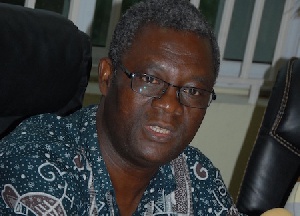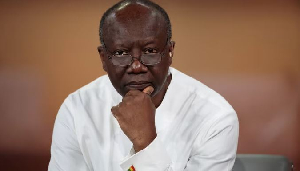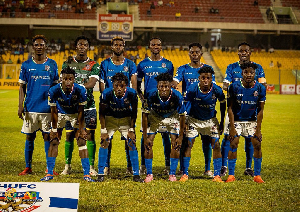The Chief Executive Officer of the Savannah Accelerated Development Authority (SADA) Charles Abugre says the authority is considering establishing a development bank with at least US$100 million starting capital to finance the developmental needs of the savannah area.
Mr. Abugre told the B&FT, on the sidelines of a stakeholders’ forum to discuss the financing vehicle for the SADA zone that the authority is looking beyond government as a financier for its developmental projects.
“The purpose is to set up a financing institution which is able to help change the economy of the SADA zone by dealing with the infrastructural gaps quickly. The area has the worst road etc but has huge potential that has to be tapped. For example, there are opportunities for large-scale commercial farming powered by irrigation; turning the Volta Lake into major container transport and others,” he said.
According to the Authority, the African Development Bank, ECOWAS Bank for Investment and the International Fund for Agriculture and Development have expressed interest in SADA’s development bank.
The proposed financing vehicle is envisaged as an independent financial institution to focus on development projects and programmes to enhance the emergence of an economically strong and industrialised Northern Savannah Ecological Zone (NSEZ).
The NSEZ, which makes about 51 percent of the country’s total land area, comprises the three Northern regions of Ghana namely, Upper East, Upper West and the Northern Region, and stretches to include districts contiguous to the Northern region that are located north of Brong-Ahafo and north of the Volta region..
Since SADA’s establishment, the biggest chunk of cash to finance its projects has come from government and Mr. Abugre said that approach can no longer be sustained explaining that it is prudent for the authority to seek other sustainable means of financing its projects.
“When you are looking at long-term economic development- changing the structure of the economy- you cannot finance that from commercial banks as such funds are usually beyond them or borrowing from them is very expensive,” he explained.
According to the SADA CEO, the development bank when established would be leveraged on to access as huge funds from the international capital market as well as from other foreign development financing agencies.
“When you are raising the funds from outside the country, you need domestic commercial guarantees or investment to make the foreign part of the money work. This is why it is imperative if the purpose of our country is to turn that half our country around, you need an entirely financing vehicle than the one the currently exists,” Mr. Abugre said.
SADA is currently working with some development organisations and a Singaporean planning team to identify specifically what projects needs to be undertaken and their respective costs in order to forecast how much needs to be invested in the region to see a turnaround in residents’ fortunes.
The push to develop the Northern Savannah Ecological Zone, the SADA boss added, fits perfectly into the country’s 40-year development plan recently launched by the National Development Planning Commission (NDPC).
SADA played an instrumental role in organising the NDPC’s regional stakeholders’ consultation" in the savannah zone.
Mr. Abugre said SADA strategic plan will “ultimately” fit into the national plan.
“The national plan has to draw on the SADA strategic plan. Because we are working in a smaller area, we can go more detailed than the national process is able to do. We are doing this in synergy,” he added.
Business News of Sunday, 8 November 2015
Source: B&FT













